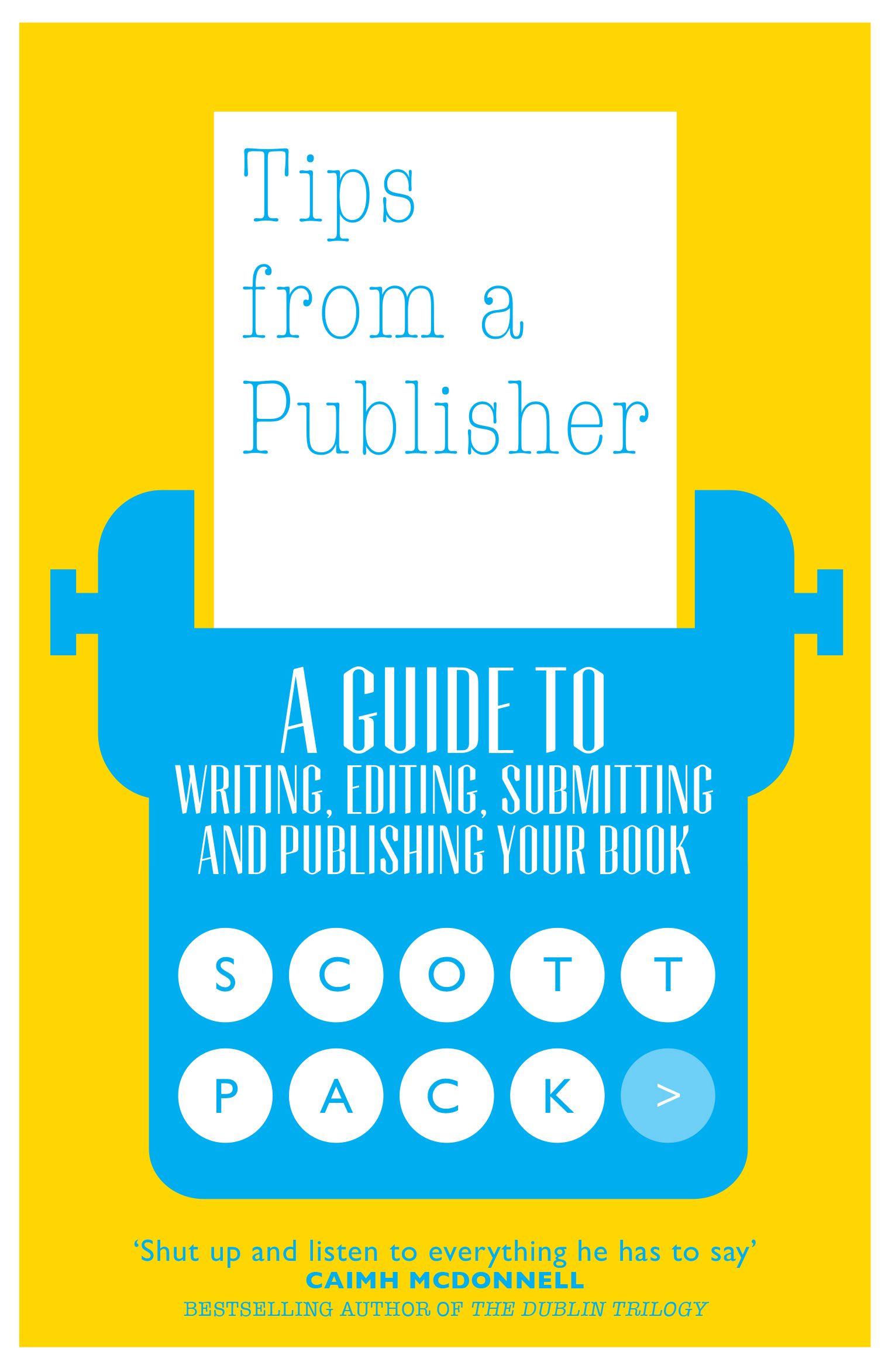Having spent several years as a publisher at HarperCollins, acquiring and editing numerous bestsellers and award-winning books, Scott Pack knows a thing or two about the publishing world. If you seek to succeed as an author, his advice is for you.
During my twenty years in the book world, mostly as a publisher and editor, I have been sent a lot of manuscripts. A lot. And in that time I have seen writers make the same mistakes over and over again. Now, I want to be clear from the outset: I think writers should be free to make loads of mistakes, it is part of the creative process and I actively encourage it. However, if you are trying to get your work accepted by an agent or publisher it would make sense to avoid the stuff that might prompt them to think, ‘This isn’t quite ready yet’. Here are some examples.
Twiddling Thumbs
Running their fingers through their hair, dropping their jaws in surprise, having a shiver run up, or down, their spine — these are all things that people do way more often in fiction than in real life. Body language can be useful shorthand to show emotions and temperament, but try to avoid clichés. Invest in a book about body language, or watch some online videos on the subject, to see what people really do with their bodies when they are scared, thoughtful, anxious, and so on.
He Said, She Said, They Said
Dialogue tags are the words before or after speech that tell the reader who was speaking.
“So now you know what a dialogue tag is,” said Scott.
One fascinating thing about dialogue tags is this: readers ignore them. No, really. Most of the time they don't even notice they are there. And that is as it should be, because we want them to focus on the dialogue itself. However, new authors often feel they need to spice things up and do anything to avoid using ‘said’ too much. Their characters interject, muse, scream, shout, opine and ejaculate all over the place when there is really no need to. It can come across as a writer trying too hard.
“And the same can be said for adverbs in dialogue tags,” Scott muttered wearily.
Redundancy
As a writer you are free to employ a verbose, ornate narrative style if you wish, just as you can be economical and spare with your use of words if that is your preference. However you choose to write, it is a good idea to avoid saying the same thing twice, especially in the same sentence.
Examples of everyday redundancy include phrases such as ‘circle around’, ‘close scrutiny’ or ‘blue in colour’ when ‘circle’, ‘scrutiny’ and ‘blue’ give the reader the same information. But redundancy could also be telling the reader a character is angry when you have already made that clear through their actions or words.
Use of Character Names in Dialogue
“In real life we don’t use people’s names in conversation anywhere near as often as characters seem to do in unedited manuscripts.”
“Is that right, Scott?”
“Yes it is, Reader.”
“I must say that I hadn’t noticed that but now you mention it, Scott, I realise I do it all the time.”
“And now you have noticed, Reader, it looks a bit odd, doesn’t it?”
“Yes it does, Scott. Thanks so much for pointing it out.”
“Reader, it is not even remotely a problem. Consider it a reward for reading this article.”
TMI
Too much information! Specifically, avoid info dumps. Providing a detailed list of the technical capabilities of a fighter plane the moment it is mentioned in your thriller is an info dump. Outlining the history of an ancient building as your character walks into it to meet with their one true love is an info dump. Sharing the detailed financial background of a corporation that plays a role in your spy novel is an info dump. If you need the reader to be aware of a piece of information, then think about how to share that, and even if you do need to share it at all. A sprinkling of information within the narrative is fine, but a paragraph or more is usually overdoing it. Perhaps one character can ask a question of another, or you can reveal the information gradually. If you really must share bucketloads of information in one go then you could frame it as a news report or something like that but, in general, info provided all at once in a big torrent is rarely fun to read.
Names & Pronouns
Overuse of a character’s name is a common error I find in manuscripts. Scott did this, Scott did that, Scott jumped over here, Scott fell down there, Scott muttered to himself that he was a clumsy oaf. Once you have established which character you are talking about, you don’t need to mention their name every time; whole paragraphs can go by with just pronouns — he, she, they — as long as there is no confusion about who is doing what. Scenes involving multiple characters will, understandably, require a more frequent use of names but even then, if it is obvious who you are talking about then a pronoun is just fine.
These are just a handful of examples of things new and emerging writers do quite often but established writers tend to avoid. And there are loads more where these came from — overuse of adverbs and adjectives, getting the balance of show and tell wrong, relying on a thesaurus when a more simple word would do, opening your novel with a character waking from a dream or staring into a mirror — but I don't want to overstay my welcome.
You should, of course, feel free to tell your story the way you choose, but I hope the advice above will help you if you want to write a book that will catch the eye of an agent or publisher. I wish you luck.

Scott’s latest book, Tips from a Publisher, was written using Ulysses, and has been called ‘the book every aspiring writer needs to own’. It can be purchased from anywhere that sells print books or ebooks, but also direct from the publisher. Ulysses users can get 30% discount and free UK shipping by using the code ULYSSES at checkout.
